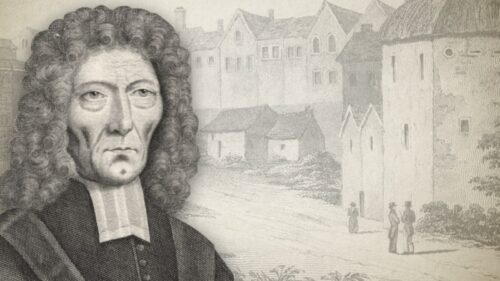-
My Response To Josh Buice’s Assault On Hyper-Calvinists
Josh Buice, pastor of Pray’s Mill Baptist Church (Atlanta, Georgia), serves as Assistant Professor of Preaching at Grace Bible Theological Seminary and is the founder and president of G3 (Gospel—Grace—Glory) Ministries. On November 22, 2016, he published a column entitled “Calvinism Is Not Hyper-Calvinism” to “Delivered By Grace”. It is to this article I wish to respond. He begins, “Last week, I was interviewed by Chris Arnzen on his radio show, Iron Sharpens Iron, on the subject of hyper-Calvinism. It caused me to think about this subject and the importance of using vocabulary properly. As the father of a type 1 diabetic, I spend much of my time explaining to people in random conversations that type 1 diabetes (T1D) is not the same thing as…
-
Covenant Theology And The Particular Baptists
The Reformed Baptist denomination, a section of which has amped up its claims to be the modern day representatives of the English Particular Baptists (PB's), subscribe to a seventeenth century covenantal framework reflective of the Westminster Confession and that of Presbyterianism. In their view, (1) the covenant of redemption is relegated to the backdrop of an ‘eternity past’ with (2) a conditional covenant of works God made with Adam before the Fall (requiring of him perfect obedience to the heart-law) and (3) a conditional covenant of grace God made (or promised to make) with sinners after the Fall (requiring of them saving faith in Christ). Because they have adopted the 1689 Baptist Confession as their denominational statement of faith, they believe this entitles them to…
-
My Prototype Of The Sovereign Grace Framework
I use for the backdrop of my teaching ministry something called the Framework of Sovereign Grace. It is a diagram designed to illustrate the masterplan of God for the ages. This diagram emerged around ten years ago while expounding the ninth chapter of Paul's letter to the Romans. Initially, it served as an aid to my own understanding of sovereign grace and the biblical covenants. However, it wasn't long before I incorporated it into my teaching ministry. Visual aids have always been an essential tool for my learning, and while not everyone may be a fan, I am encouraged by men such as William Perkins and John Bunyan, both of whom illustrated their framework of teachings with a diagram. My framework differs from theirs, but…
-
The Origin Of The Reformed Baptist Movement In America
How often do we hear the Reformed Baptists (RB) lay claim to the historic legacy of the Particular Baptists (PB), as if the two groups are one and the same? The English RB's lay claim to this heritage based on their requisition of historic PB chapels and the imposition of 'reforms' they have made to the churches. The American RB's lay claim to it based on their perceived oneness with the seventeenth century PB's, responsible for drawing up the 1689 Confession. Since the RB's are 'confessional', subscribing to the 1689 as the standard statement around which their movement is solidified, so it is assumed the PB's have always been 'confessional', subscribing to the same statement for the same reason. Henceforth, if the PB's were 1689…
-
4 Hyper Calvinist Quotes
Below are twenty-five more statements made by Hyper Calvinists: J. Foreman: “If it be the natural man's duty to believe unto salvation, then it must be the natural man's duty for God himself to be to him all what by promise and gift he is to those who through grace do believe unto salvation; and then it must be the natural man's duty for the eternal God to be to him a covenant God - a Redeemer - a Shepherd - a Saviour - a Preserver - a Comforter - a Rock, Refuge, Sun, Shield, High Tower, Horn of Salvation, and Strength - the God of all grace - a Guide - a Father and portion for ever. All this the Lord is to them…
-
Jared Smith On Various Issues, The Earthen Vessel, William Styles, A Guide To Church Fellowship (Complete)
Spurgeonism And The Strict And Particular Baptists
Dear Sir,—For some time I have felt the need of a few straight and honest words on this subject, for the instruction both of brethren who are not sentimentally with us; and also of some of the members of our own Churches. The principles which distinguish us as a section of the Baptist denomination seem to be but little known. Our own friends manifest far less determination than they used, in contending for the faith—while hardly a month passes, but I am entreated to advance the interests of brethren holding the late Mr. Spurgeon's creed, by introducing them to some of our vacant pulpits, as if their views and ours were all but identical and our differences were most immaterial and unimportant.






